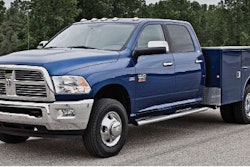
Q Typically in shipper contracts, we as a carrier are asked to provide a certificate of insurance for general liability and auto liability showing the shipper as an “additional named insured” and waiving subrogation. What is the effect of this request, and why are many insurers unwilling to provide this certificate?
A Because shippers do not want to get involved in third-party lawsuits over accidents, they often request additional insured status and waiver of subrogation. Additional insured status gives the shipper several benefits: Policies cannot be canceled without actual notice being given to the shipper, and if the shipper is named as a party defendant for negligent selection or other types of passive negligence, the carrier’s insurer owes the shipper a duty to defend.
Both of these additional requirements are beneficial to the shipper, although ordinarily not necessary. Because of the BMC-91X endorsement, the traveling public is assured that the statutory minimum will be paid by the licensed motor carrier’s insurer for any judgment entered against the carrier. By confirming that the carrier is licensed, authorized and insured, the shipper should have confidence that the carrier’s insurer cannot cancel the policy, deny coverage or escape liability on a policy exclusion. Additional insured status is helpful to protect the shipper against a carrier’s insurer that otherwise might settle a claim with the plaintiff for less than the amount of the endorsement and leave the shipper to settle its liability issues as a separate matter.
Unfortunately, here is the rub. By seeking additional insured status plus waiver of subrogation, many shippers apparently think they are extending the carrier’s insurance to cover their acts of active negligence and that somehow the motor carrier’s insurer now is extending coverage to them for their direct acts of negligence. In this context, waiver of subrogation is a term that means that an insurer, upon paying the claim, does not acquire the rights of the claimant or the insured to seek recompense from the shipper under otherwise applicable law for its contributory or comparative negligence.
It is one thing for a carrier to affirm that it will be responsible for its own acts of negligence to the extent it causes the shipper harm or embroils the shipper in a lawsuit. It is another thing to represent that the carrier’s insurance somehow extends coverage to the shipper for the shipper’s negligence. That is why most motor carriers’ insurers prefer, if not insist, that the carrier’s indemnification of the shipper apply “only to the extent” of the carrier’s negligent or willful act.
Some insurers have policy conditions that even go so far as to deny coverage where waiver of subrogation is granted without its permission. Accordingly, a motor carrier should be sure it fully understands the perils of agreeing to waiver of subrogation and additional insured status. Confirm in writing with your underwriter that granting the shipper these remedies is permissible under your policies, and be sure your shipper is not misled by your acceptance of its language into believing you somehow are accepting an insurance obligation for its acts of negligence.

Do your homework before agreeing to shield customers from claims.
Subrogation is the right for an insurer to pursue a third party that caused an insurance loss to the insured.
The BMC-91 endorsement and evidence of a carrier’s insurer can be found at http://www.li-public.fmcsa.dot.gov/LIVIEW/pkg_carrquery.prc_carrlist.
Insurers must give 30 days notice to the Federal Motor Carrier Safety Administration before cancellation, which will be reflected on the agency’s Website.











